Payments
Our Payments category includes all aspects of accepting credit cards, including our 2-part “Primer on Merchant Accounts” and our 3-part “Credit Card Processing FAQs.” We also address cryptocurrencies, hosted payment apps, buy-now-pay-later, and more.
-
 Payments
Payments
Credit Card Processing: Beware of ‘Rate Reductions’
May 2, 2017 • Phil Hinke
In my experience, most merchants feel that their credit card account provider is more likely to increase their rates or invent new fees rather than offer an unsolicited rate reduction. The ...
-
 Payments
Payments
Credit Card Processing: 3 Items to Review on Jan. 2017 Statement
February 27, 2017 • Phil Hinke
Merchants should have received their credit card processing statements for January 2017 activity. They should take the time to review three important items. Investigate Customer Refunds It’s not uncommon for merchants to ...
-
 Payments
Payments
Credit Card Processing: Better to Work with Resellers or Processors?
September 29, 2016 • Phil Hinke
My recent series on working with credit card salespeople prompted good feedback and questions from readers. I addressed some of the questions in my August article. For this article, I will ...
-
 Payments
Payments
Why Do Credit Card Providers Offer Flat Rate Processing?
August 30, 2016 • Phil Hinke
Many readers gave good feedback on my recent 3-part series on partnering with credit card salespeople. I will be addressing this feedback in upcoming articles. A few merchants sent me their provider’s email response after ...
-
 Payments
Payments
Partnering with Credit-card-processing Salespeople, Part 3: Weeding Out Unacceptable Parties
July 28, 2016 • Phil Hinke
When soliciting and evaluating a request for proposal for a client’s credit card processing, I always let the client include any provider or salespeople she wants. Clients often want to ...
-
 Payments
Payments
Partnering with Credit-card-processing Salespeople, Part 2: Setting Expectations
June 24, 2016 • Phil Hinke
Before you signed your current credit card processing agreement, did you tell the salesperson what you expected from him and the provider? Did you ask him what he expected from ...
-
 Payments
Payments
Partnering with Credit-card-processing Salespeople, Part 1: Detailed Statements Key
May 25, 2016 • Phil Hinke
The pay of most salespeople in the credit-card-processing industry is 100-percent commission. Salespeople therefore presumably do not want to lose an account from an ecommerce or any other business. Unfortunately, many ...
-
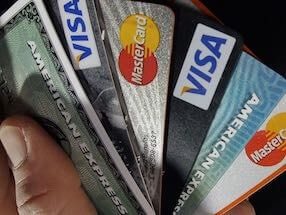 Payments
Payments
Credit-card-processing Negotiating Mistakes, Part 2: Understanding the Offer
April 5, 2016 • Phil Hinke
This is the second installment of a 2-part series on common mistakes I see from merchants, when they negotiate the rates and fees of credit-card-processing providers. In “Part 1: Terminology,
-
 Payments
Payments
Credit-card-processing Negotiating Mistakes, Part 1: Terminology, Exits
February 15, 2016 • Phil Hinke
This is the first article in a 2-part series on common mistakes I see merchants make when negotiating rates and fees or analyzing the offers from different credit-card-processing providers. Credit-card-processing Negotiating ...
-
 Payments
Payments
Credit Card Processing: American Express OptBlue Rates Often Wrong
October 26, 2015 • Phil Hinke
Did you change credit card providers or renegotiate pricing with your existing provider in the last year? If so, did you verify that you were actually receiving the rates and ...
-
 Payments
Payments
Check Credit Card Processing Rates before Holiday Rush
October 2, 2015 • Phil Hinke
Sales over the next three months will be crucial to the profitability of many ecommerce merchants. Credit card processing costs over this timeframe will affect profitability, too. This article is ...
-
 Payments
Payments
EMV Credit Cards: Beware Misleading Equipment Sales Tactics
August 26, 2015 • Phil Hinke
This article is mainly for brick-and-mortar merchants, regarding the October 1, 2015 fraud-liability rule changes and misleading sales tactics surrounding the changes. The new rules are causing a high percentage of retail merchants ...
-
 Payments
Payments
Credit Card Processing: Detailed Statements Essential for Merchants
July 20, 2015 • Phil Hinke
I presented a Practical Ecommerce webinar last month on lowering merchant processing costs. I’ve received several questions since then regarding my views on processing statements. Therefore, I want to address ...
-
 Payments
Payments
Beware Hidden Increases from Credit Card Providers
May 26, 2015 • Phil Hinke
The fact that some credit card providers periodically sneak in cost increases to their merchants isn’t new. The providers often do this with a notice like this to their merchants:
-
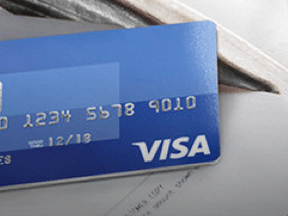 Payments
Payments
Follow-up: EMV Credit Cards and AmEx OptBlue
March 24, 2015 • Phil Hinke
This is a follow-up to two topics I addressed previously on credit card processing: EMV chip cards and the American Express OptBlue program. I described earlier this year the changes affecting EMV ...
-
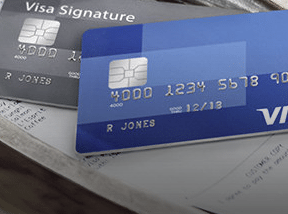 Payments
Payments
EMV Credit Cards, Part 2: Point-of-sale Devices, Alternatives
February 13, 2015 • Phil Hinke
This article is mostly for brick-and-mortar retailers, as the October 2015 rule changes, which I discussed in "Part 1," are specific to card-present merchants.
-
 Payments
Payments
EMV Credit Cards, Part 1: Who Is Responsible for Losses?
January 12, 2015 • Phil Hinke
This article is mainly for brick-and-mortar retailers. The upcoming October 2015 rule changes regarding EMV-enabled credit cards are specific to card-present...
-
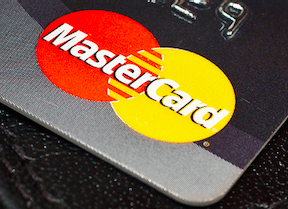 Payments
Payments
B2B Merchants Often Overpay for Card Processing
November 21, 2014 • Phil Hinke
Business-to-business merchants often overpay for credit card processing. There are many reasons for this, but one of the main ones is they choose a merchant account provider that doesn’t have ...
-
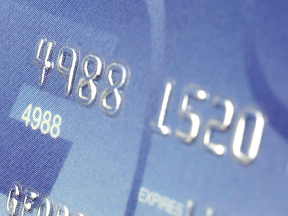 Payments
Payments
Review Credit Card Processing in October, before Holidays
October 16, 2014 • Phil Hinke
All ecommerce merchants should take the time to review their processing statements this month before the holiday shopping season begins. Merchants need to check for the following items, and correct ...
-
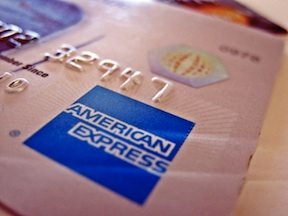 Payments
Payments
American Express OptBlue: Negotiating Processing Rates
September 22, 2014 • Phil Hinke
In “American Express OptBlue Program May Reduce Processing Cost,” my article in July, I explained how the new OptBlue program could reduce processing rates for ecommerce merchants, as it allows ...
-
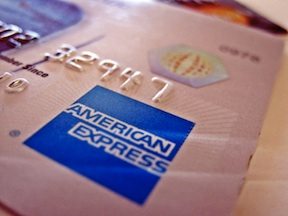 Payments
Payments
American Express OptBlue: Understanding Processing Rates
August 18, 2014 • Phil Hinke
In “American Express OptBlue Program May Reduce Processing Cost,” my article last month, I explained American Express’s new program called OptBlue. This program should lower the American Express processing cost ...
-
 Payments
Payments
American Express OptBlue Program May Reduce Processing Cost
July 15, 2014 • Phil Hinke
American Express recently came out with a new program called OptBlue, where the final processing rates and fees paid by the merchant are set by the merchant account provider, not ...
-
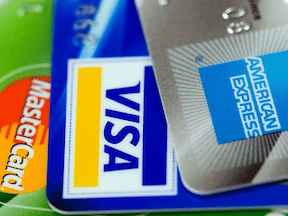 Payments
Payments
Merchants Discover Misleading Credit Card Processing Fees
June 16, 2014 • Phil Hinke
I want to thank Practical Ecommerce readers for their comments on my last article series, “How to Identify Dubious Credit Card Processing Fees.” I also appreciate readers sending me suspicious ...
-
 Payments
Payments
How to Identify Dubious Credit Card Processing Fees, Part 3
May 15, 2014 • Phil Hinke
Editor’s Note: This is “Part 3” of a three-part series. “Part 1” and “Part 2” we published previously. The purpose of this series is to educate merchants on questionable credit ...
-
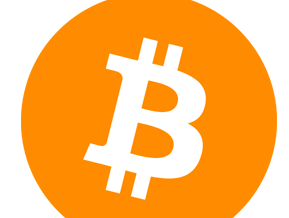 Payments
Payments
Should Ecommerce Merchants Accept Bitcoin?
May 7, 2014 • Marcia Kaplan
Bitcoin, the best known of several virtual payment currencies, has made inroads into mainstream commerce, including brick-and-mortar retailers. Some ecommerce sites are already accepting Bitcoin and if you are considering ...
-
 Payments
Payments
How to Identify Dubious Credit Card Processing Fees, Part 2
April 23, 2014 • Phil Hinke
Editor’s Note: This is “Part 2” of a three-part series. “Part 1” we published last month. The purpose of this series is to identify dubious fees that are commonly charged ...
-
 Payments
Payments
How to Identify Dubious Credit Card Processing Fees, Part 1
March 25, 2014 • Phil Hinke
Editor’s Note: This is “Part 1” of a three-part series. My article last month, “Credit Card Provider Sued for Deceptive Tactics,” generated questions from merchants regarding the suit, its impact, and the hidden,
-
 Payments
Payments
Credit Card Provider Sued for ‘Deceptive’ Tactics
February 13, 2014 • Phil Hinke
Heartland Payment Systems, one of the largest credit card providers in the U.S., stated in a press release that it has filed a federal lawsuit against Mercury Payment Systems, also ...
-
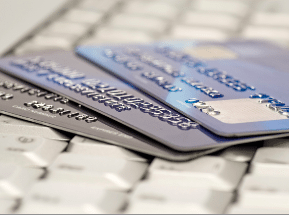 Payments
Payments
$6 Billion Visa, MasterCard Settlement Final; How to Claim
January 15, 2014 • Phil Hinke
Last month, the U.S. District Court for the Eastern District of New York approved a settlement in a class-action lawsuit between merchants (as plaintiffs) and Visa, MasterCard and other defendants. The case ...
-
 Payments
Payments
3 Examples of Misleading Credit Card Processing Charges
December 20, 2013 • Phil Hinke
Editor’s Note: This is part two of a two-part series. The first installment, “Feds Eyeing Credit Card Processing Industry?,” we published last month. In “Feds Eyeing Credit Card Processing Industry?,” part ...